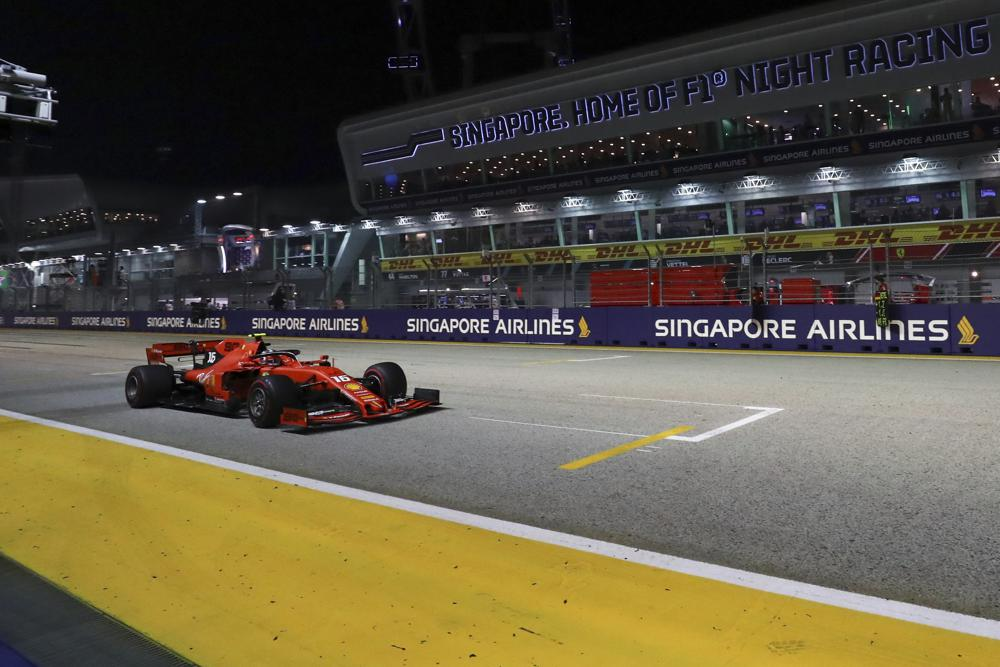Race to the Top: How F1 in Singapore has Increased its International Prestige
Ferrari driver Charles Leclerc steers his car during the 2019 Singapore Formula One Grand Prix Source: AP Photo / Lim Yong Teck
Singapore is known for many things: the filming location for Crazy Rich Asians, the country where selling chewing gum is illegal, and the place with the world’s best airport.
But Formula 1 (F1) fans may know it for a different reason: with humid temperatures, sharp turns, and narrow roads, the Marina Bay City Circuit has captured the hearts of F1 fans. Just two weeks ago, on Oct. 2, a rainy race caused six drivers to crash out, and fan favorite Max Verstappen to narrowly miss the championship title.
Since winning the bid in 2008, Singapore has been F1’s first night circuit, and the first street race in Asia. Earlier this year, the city-state signed a 7 year contract extension with F1, extending their time until 2028.
Yet hosting an event this prestigious comes with heavy costs: the average cost to host one F1 event is an estimated SGD 150 million (USD 105 million), 60% of which is provided by the government.
This begs an important question: Why does Singapore choose to shoulder so much of the cost in holding an F1 race, especially, given the few obvious benefits it produces?
One of the reasons is tourism - according to Singapore’s Ministry of Trade and Industry, “since 2008, the Singapore Grand Prix generated around $130 million in annual incremental spending… [and] attracted more than 550,000 international visitors thus far.”
With 2022 being the first race in Singapore since 2019, fans have returned in full force.
There was a record high of 302,000 attendees to the three-day event, while hotels reported rooms being booked out “within minutes” of the announcement of F1 dates.
The benefits go beyond just the numbers. By attracting such large crowds of tourists, it creates a positive impression of Singapore in foreign countries, reinforcing its image as a popular tourist destination. It can also create closer ties between citizens in Singapore and the tourists’ countries, encouraging mutual respect and better understanding of each other’s cultures.
The second, less obvious reason is the international prestige that such an event gives the state. By hosting such a large event so smoothly, Singapore gets to show off its capable and efficient administration.
According to Transport Minister S Iswaran, “It’s a very clear sign that Singapore is back strong, ready to host world-class events.” The confidence inspired by F1 sets Singapore as an attractive destination for meeting, incentive, convention, and exhibition (MICE) events, such as the Milken Institute Asia Summit and the Forbes Global CEO Conference.
It’s no wonder that Singapore fought so hard to get onto the F1 calendar.

